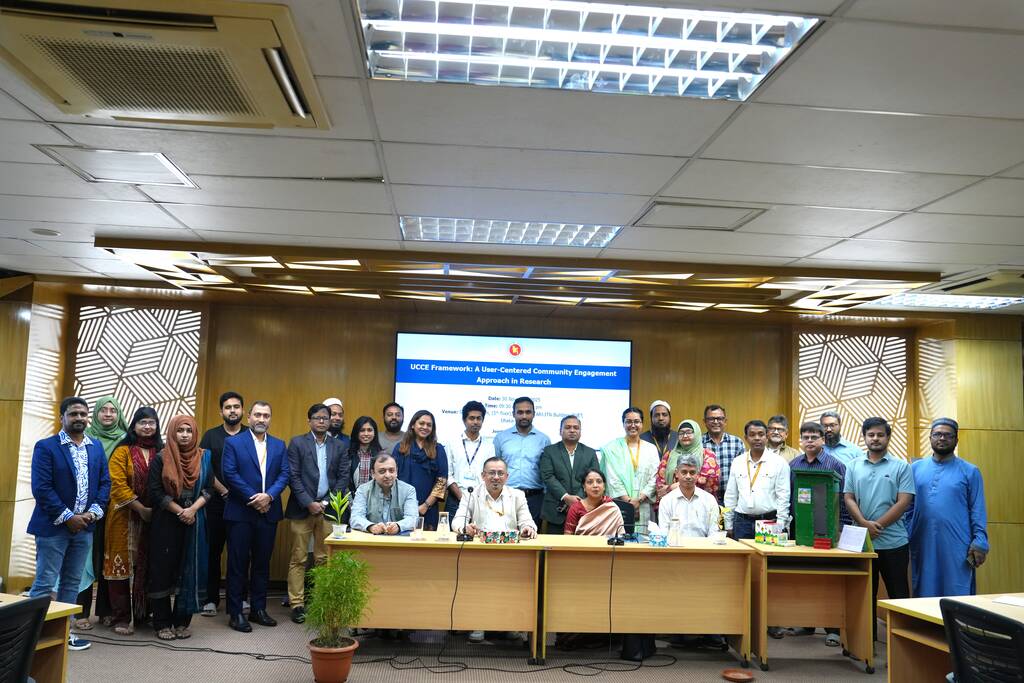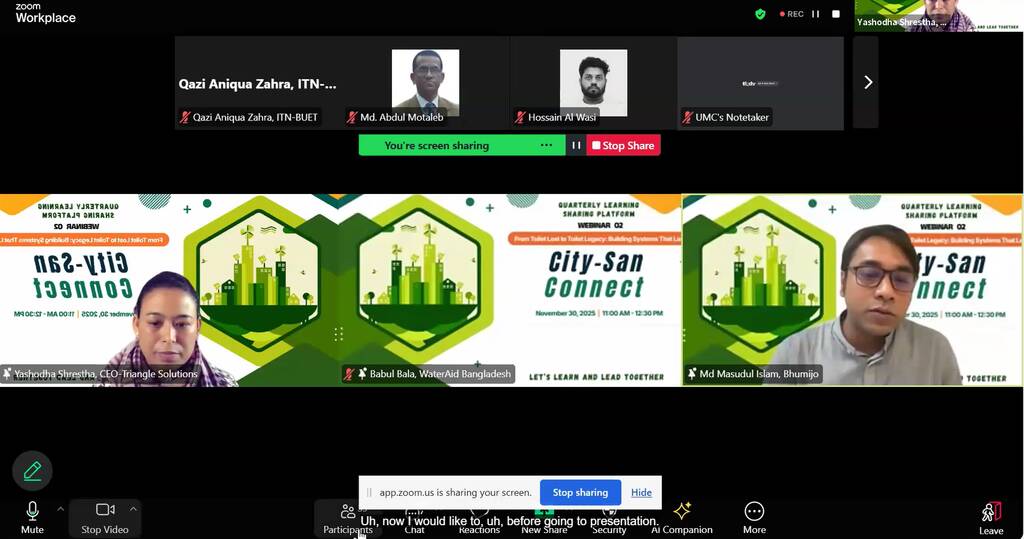At the UNC Water & Health Conference 2023, an abstract highlighted the critical link between citywide sanitation initiatives and women’s empowerment in Bangladesh. Presented by ITN-BUET, the abstract titled “Sanitation Interventions and Women’s Empowerment: A Comparative Assessment of Two Cities in Bangladesh” shed light on the impact of sanitation interventions on women’s lives. The authors of this research were Ms. Afia Zahin Nita Hossain, Ms. Makfie Farah, and Prof. Dr. Tanvir Ahmed.
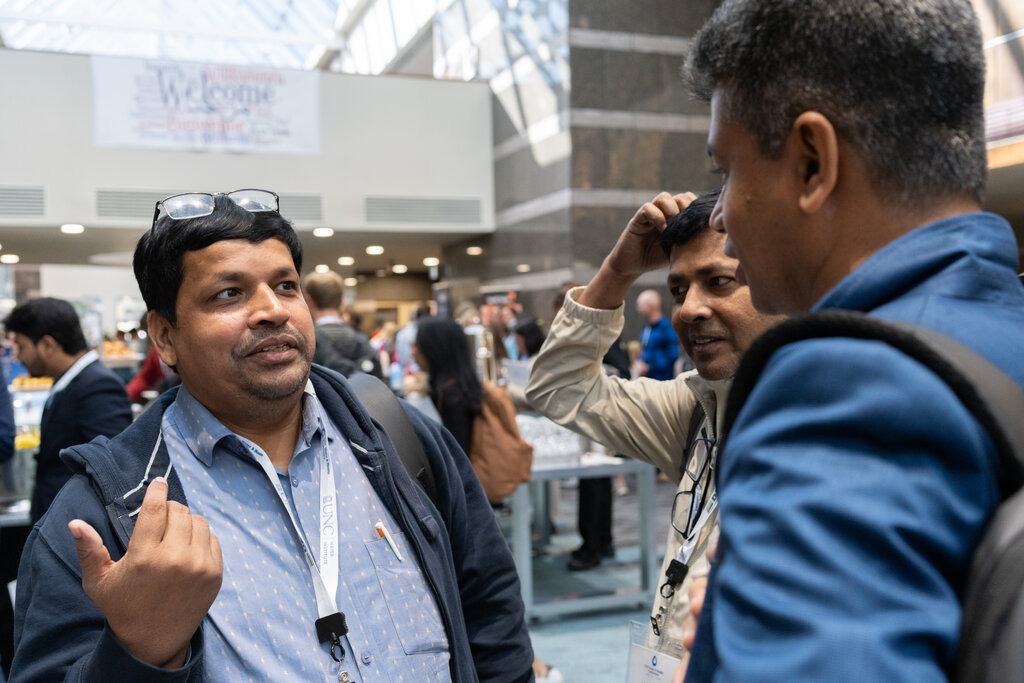
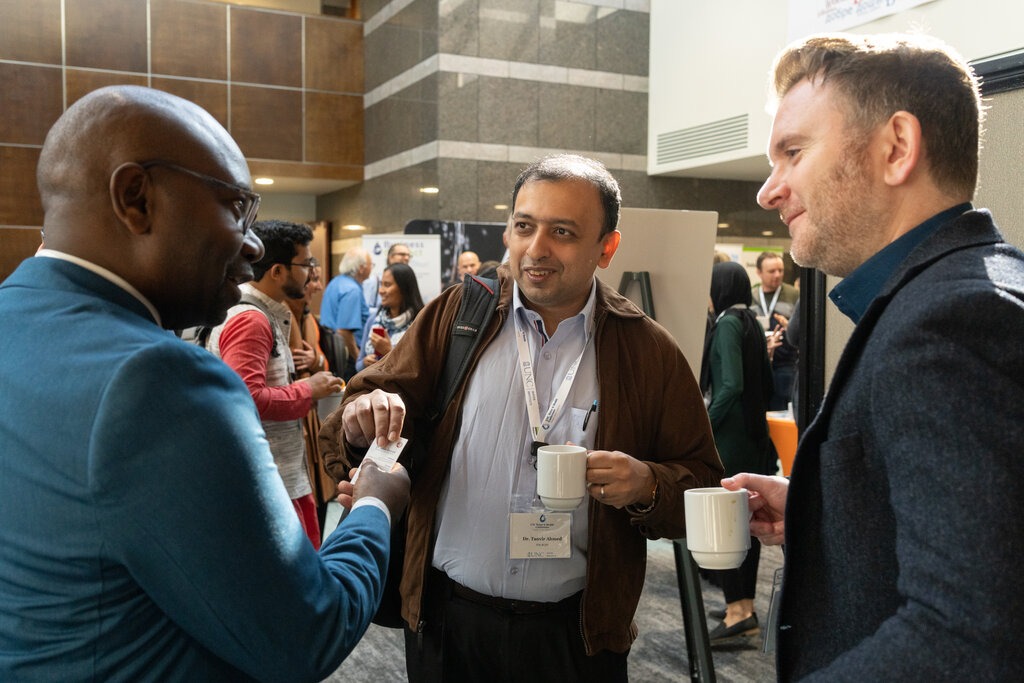
This conference, held from October 23-27, 2023, at the Friday Center in Chapel Hill, North Carolina, reflects the Water Institute’s dedication to advancing public health through universal access to safe and sustainable WASH services. The conference served as a platform for policymakers, practitioners, and researchers to engage with evidence, examine the science, and shape innovative approaches to expand WASH access and services.
On the inaugural day of the conference, Mr. Alauddin Ahmed, Project Manager of ITN-BUET, presented the abstract where he discussed the empowerment factors associated with sanitation interventions for women in Meherpur and Saidpur Municipalities in Bangladesh. He also presented the temporal correlation between these empowerment factors and the duration of sanitation interventions.
In the subsequent question and answer session, attendees expressed their interest in knowing whether the survey encompassed individuals who had migrated to these municipalities, specifically Saidpur. Mr. Alauddin Ahmed clarified that the migrants who were permanent residents were a part of the survey rather than those with temporary residence status.
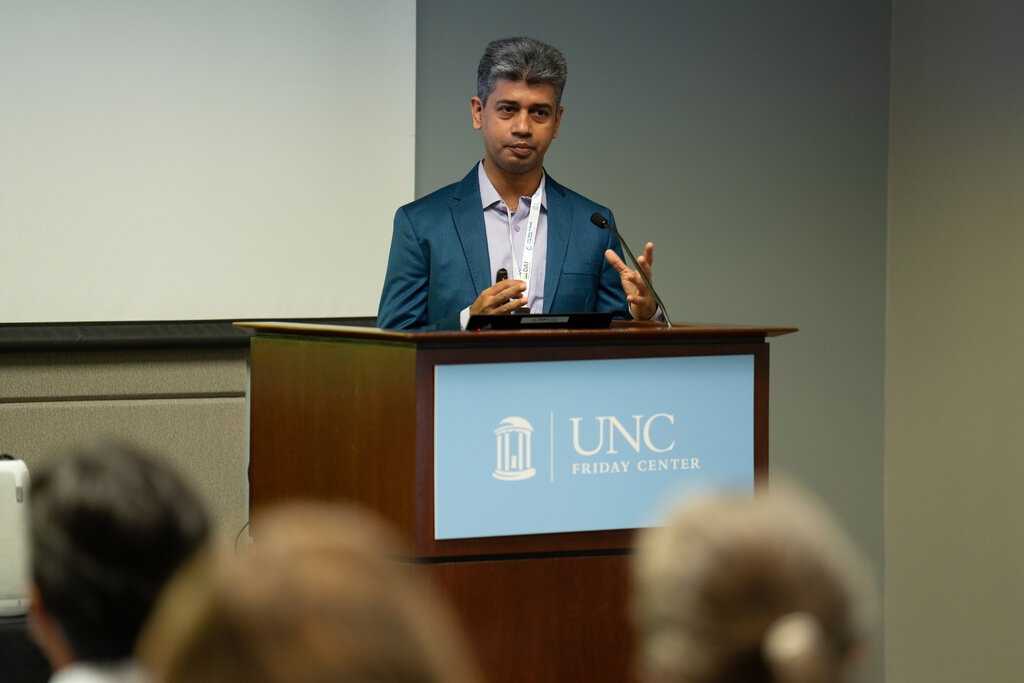
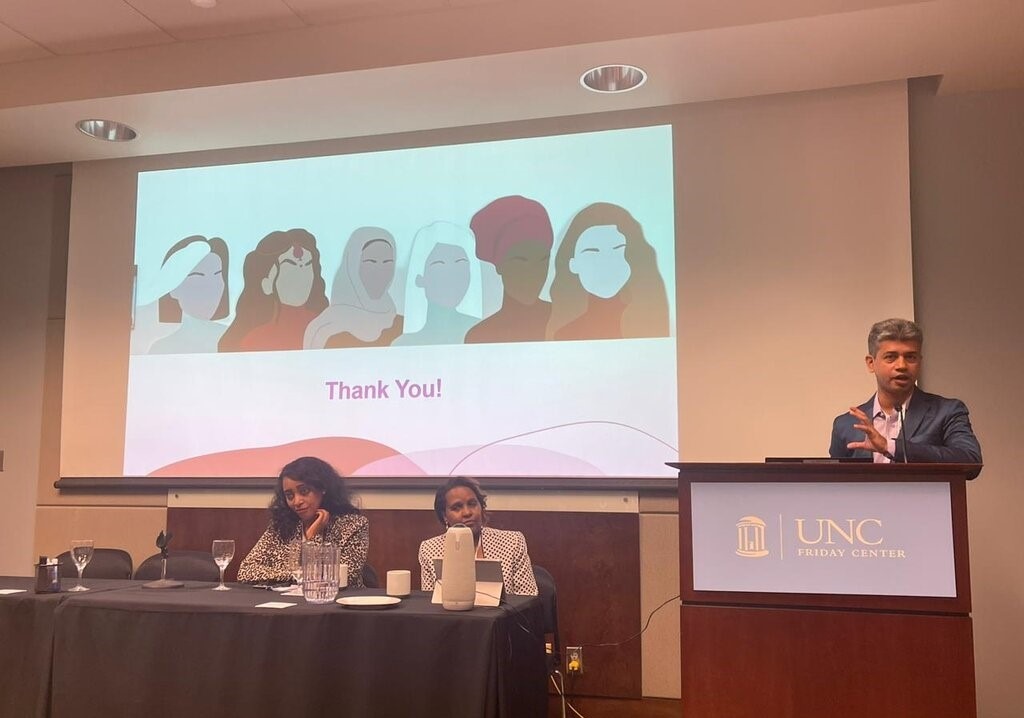
An important side event titled “Gender Equity and Social Inclusion in Citywide Inclusive Sanitation: A Discursive Perspective” took place on October 25, 2023, where Prof. Dr. Tanvir Ahmed, Director of ITN-BUET moderated the discussion.
During the side event, Mr. Alauddin Ahmed presented findings from the MUSE Study, which encompassed both Saidpur and Meherpur Municipalities in Bangladesh. There were also presentations on the integration of gender sexuality and rights in urban sanitation by CREA India, gender in CWIS by BMGF, gender and social inclusion initiatives in India by UMC India, gender and WASH in healthcare facilities in line with CWIS by SNV Indonesia, gender and WASH in schools in line with CWIS by TDH Nepal and gender mainstreaming in CWIS by Practical Action Bangladesh.
The open discussion during the event delved into various aspects, including the compensation of surveyed women and the duration of the extensive survey. Mr. Alauddin Ahmed highlighted the evolving timing of the survey and the overwhelming demand from residents for household visits after initial visits.
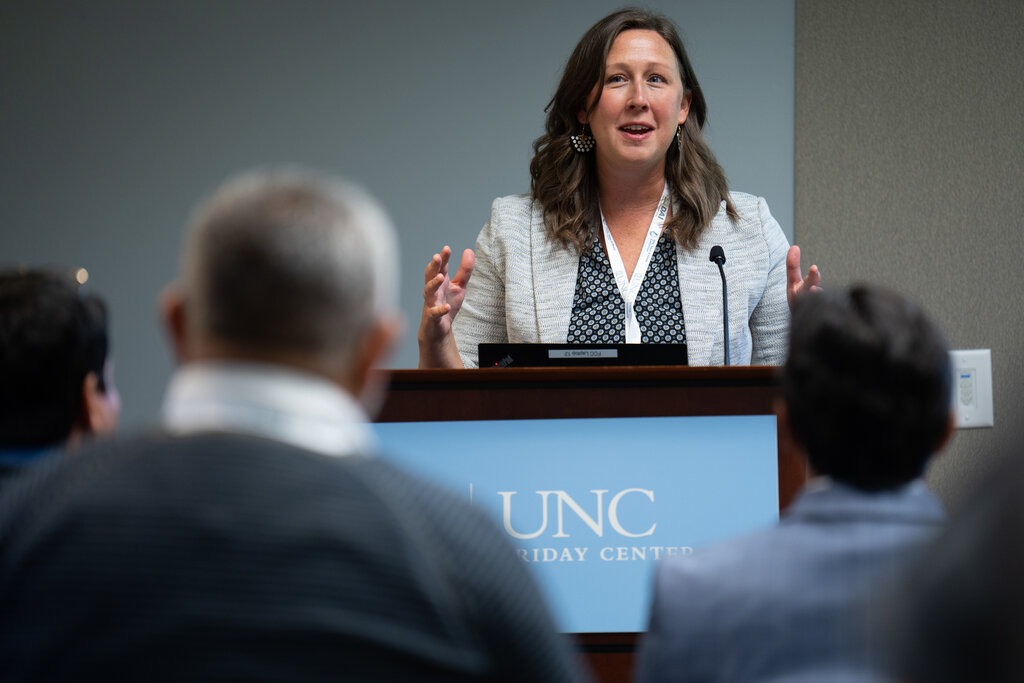
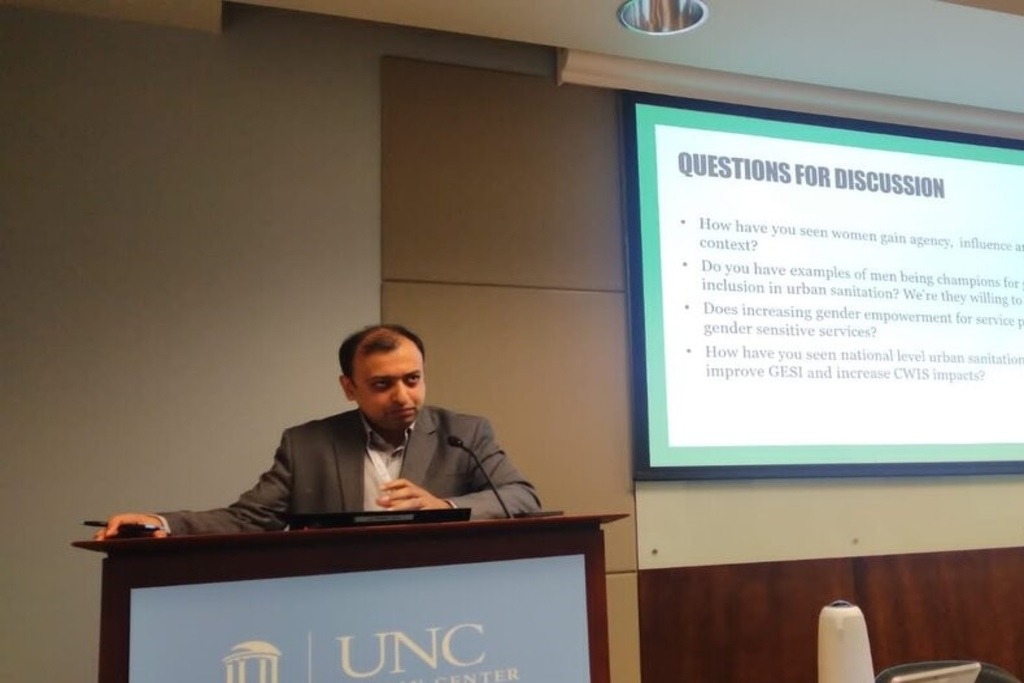
At the end of the side event, Prof. Dr. Tanvir Ahmed conveyed his insights, stating, “The presentations from India, Indonesia, and Nepal have demonstrated how women’s involvement can be heightened, not just during project design but also in the monitoring and evaluation phases. This is the direction we aspire to pursue in our development initiatives.” He further remarked, “The MUSE study has unveiled a multitude of contrasting findings. Despite positive signals in leadership, certain disparities endure, creating potential conflicts. Our intent is to conduct a more thorough analysis of the data to gain a deeper understanding of the dynamics within the realms of women’s empowerment in the context of sanitation.”



